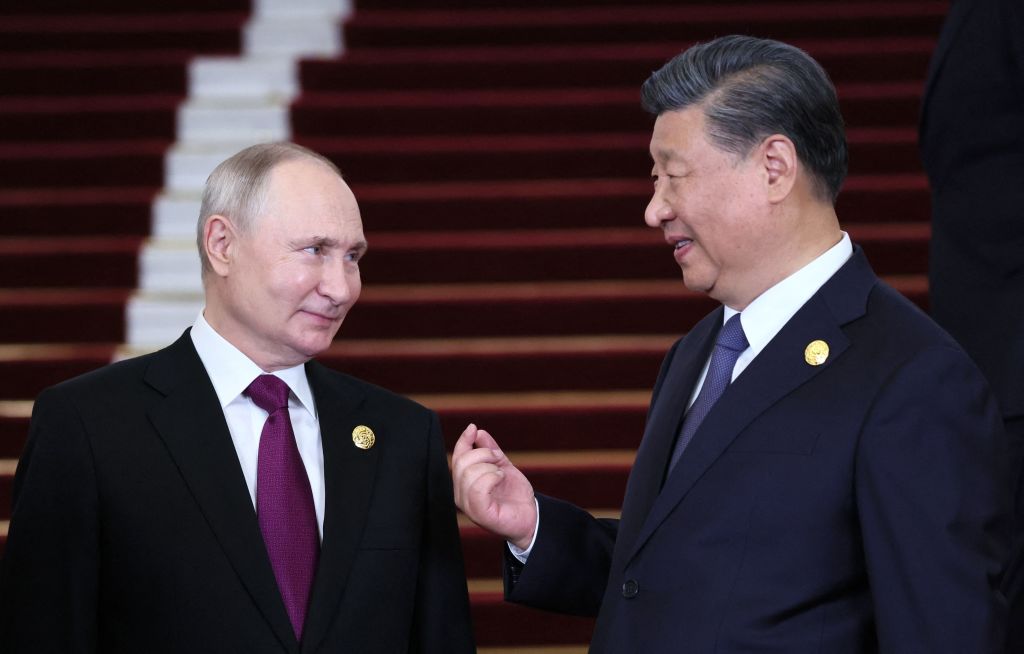As US Secretary of State Antony Blinken arrives in China today, hoping to dissuade Beijing from its support of Moscow, he seems to be forgetting one key thing: the Sino-Russian alliance is actually much weaker than it appears.
This has been made clear by none other than the Chinese themselves. One year after the Russian invasion of Ukraine, China’s Ministry of Natural Resources issued a directive for the reinstatement of historical Chinese names for territories it once held, including those located in neighbouring nations such as in Russia’s Far East.
For example, following this directive the city commonly known as Vladivostok will be rechristened “Haishenwai” in Chinese documents, its name for the period when it was under Chinese control which ended in 1860 with the Convention of Peking. In contemporary China, the Convention is considered part of the so-called “unequal treaties”, describing forced concessions to Western powers at a time of Chinese weakness. Revising and correcting this humiliating part of history has been a stated goal by the Chinese leadership, and while the current cooperation with Moscow might serve short-term interests, there is an expiration date to the Sino-Russian love affair marked by looming territorial conflicts.
Any realist assessment shows a genuine potential for conflict between the two nations. The threat to Russia from the West pales in comparison to the emerging geopolitical struggle for hegemony in Central Asia, as well as the increasingly unsubtle Chinese territorial claims on Siberia and Russia’s Far East. For all the friendly gestures, there is already an ongoing tug of war between Beijing and Moscow for securing the loyalty of Central Asian states such as Kazakhstan, Uzbekistan, Turkmenistan, Kyrgyzstan, and Tajikistan. Both powers are aware of the strategic value and the natural resources located in the region.
Commenting on the Iran-Iraq War of 1980-88, the late Henry Kissinger said that “it is a pity both sides cannot lose.” In the proxy war between the West and Russia, Beijing is about to accomplish what Kissinger viewed as impossible in the Middle East. Both sides can lose, because the Ukraine war is not only draining Western resources but also increasing Moscow’s dependency on China, leaving Vladimir Putin defenceless if Xi Jinping decides that simply renaming Russian territory is not enough. After all, if the Russian President can invoke history to justify the annexation of Ukrainian territory, why wouldn’t China be tempted to use the same playbook in Siberia and elsewhere?
There are no signs that the situation in Siberia will become less difficult in the future, with increasing waves of migration from China into Russia’s hinterland. It is not inconceivable that a de facto annexation could eventually become a de jure annexation. While the issue is currently being cautiously avoided, Russian analysts have not failed to notice that a slow colonisation is taking place to the east of the Urals. Should Beijing decide to follow Moscow’s example and distribute Chinese passports to those in Siberia deemed in need of protection, Russia would, ironically, fall victim to the very policy it has been practicing in eastern Ukraine and the Caucasus regions for several years.
These geopolitical realities defy the popular narrative of a unified Brics alliance acting as a counterweight to Nato, for both the “C” and the “R” components have a whole array of possible future conflicts between them. At the moment, cooperation between Russia and China is an alliance born out of convenience, but even Putin must know that the longer this relationship endures, the more leverage he is handing Xi.
Questioned several years ago on whether he was putting “too many eggs in the China basket”, the Russian President said that “we have enough eggs, but there are not that many baskets where these eggs can be placed.” Since then, other available baskets have dwindled while the “China basket” has only grown. Taking into account the long historical memory on which both countries base their foreign policy, there are almost no indicators pointing towards a long term — much less permanent — alignment of Russian and Chinese interests.
For the West, there is no point in appealing to Putin’s better angels and hoping that his aggression towards Ukraine will stop if he is simply begged enough. Pointing out to him, however, that the true threat to his dream of rebuilding the Russian empire comes from the East and not the West could be a more promising strategy. As demonstrated by his interview with Tucker Carlson, the Russian President is trapped in a 19th-century worldview which explains both his obsession with Ukraine and his neglect of the Far East.
In reality, though, conquering Ukraine would not be as beneficial to Russia as losing the Far East would be harmful. Far from the West being the main provocateur, it is China which has been openly pursuing a slow-motion incursion into Russian territory. Russia’s present regime is a paranoid one. Yet it seems to have underplayed the real threat on its doorstep.











Join the discussion
Join like minded readers that support our journalism by becoming a paid subscriber
To join the discussion in the comments, become a paid subscriber.
Join like minded readers that support our journalism, read unlimited articles and enjoy other subscriber-only benefits.
Subscribe